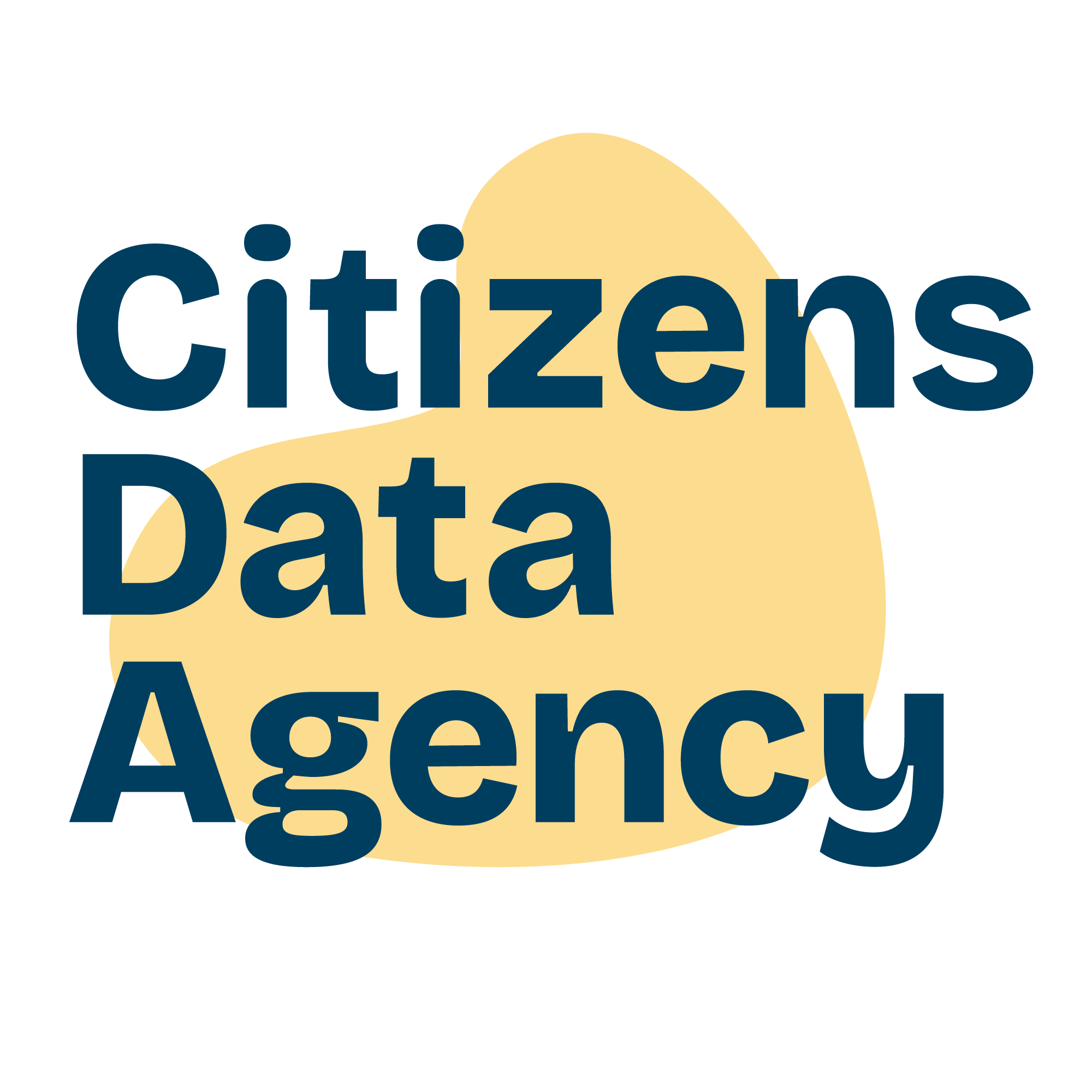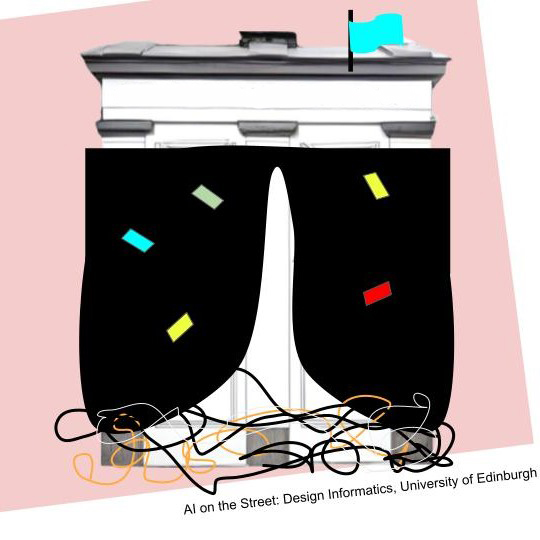Presenting an exhibition of current research at the Institute of Design Informatics exploring digital authorship and rights, data protection and privacy through the voice of marginalized groups and reflections on the potential societal impacts of AI
Join us at Inspace to chat to researchers about current projects, ORAgen Fables, Citizen Data Agency, AI for the Street… on the Street, the topics they are exploring with opportunities to participate in the research yourself.
Exhibition details
Sun 29th Sept 2024
10am-3pm
Inspace, 1 Crichton StNewington, Edinburgh EH8 9AB

Image Credit: Not I, by Unit Test, part of the Sound of Deepfake exhibition 2023. Photographer Chris Scott
Featured Projects
ORAgen Fables
Is there value in tracking contributions in collective storytelling? And what does it mean to recognise others when we add to, or reuse someone else’s work?
Join the researchers leading this project in Inspace to explore these questions for yourself through ORAgen Fables, a digital interactive exhibit which invites visitors to explore, interact, and contribute to collective digital fables about objects and current Design Informatics research.

ORAgen Fables is a research study by the UKRI Decentralised Digital Economy (DECaDE) Research Centre at Institute of Design Informatics, University of Edinburgh. ORAgen Fables is part of an ongoing research project by DECaDE investigating a technical framework known as ‘ORA’ (standing for ‘ownership’, ‘rights’, and ‘attribution’) that seeks to address digital ownership, rights, and attribution related challenges in reuse and collective making practices. By interacting with ORAgen Fables, we ask visitors to participate in our research study, inviting them to discuss whether they see tracking contributions as valuable, reflect on how this might impact our understanding of digital authorship, and consider if this might shape how others reuse and share content online.
Citizen Data Agency
The Citizens Data Agency project is a design research project exploring people’s data advice needs both today and in the future. It seeks to explore what current and future data privacy support might look like and what current needs should be addressed.
We are seeing technologies being embedded within all aspects of our lives, within our cities, homes and pockets. These interactions create large amounts of information/data which are captured by private organisations and governments for potential benefits, but they also pose increased privacy risks.

Conversations around data protection, digital privacy and online risks do not often involve people from marginalised groups, so their needs and experiences are not included in the design of support and advice. For this project, researchers in the Institute for Design Informatics have partnered with two community organisations – Amina and Datakirk – who provide support for people from minority ethnic backgrounds. Through a series of participatory and co-design workshops we explored possible future speculative data support services designed around their experiences and needs.
The project is funded by the UKRI National Research Centre on Privacy, Harm Reduction and Adversarial Influence Online (REPHRAIN) and the Edinburgh Futures Institute (EFI).
For further information, please visit the Citizens Data Agency website
AI for the Street… on the Street
Following a successful street-side pop-up collaboration with the Leith community we will be featuring “AI for the Street… on the Street,” at the Edinburgh Doors Open Day, aiming to engage the public in exploring diverse perspectives on artificial intelligence (AI).
Join us at Inspace where you are invited to participate actively with the display, and to offer your own insights and reflections on the potential societal impacts of AI. This intervention seeks to spark conversations and provide means for you to have your say and to consider how AI might influence and shape our future.

AI for the Street… on the Street, is part of AI in the Street 6-month scoping project, aiming to understand the connections and tensions between how people make sense of AI in daily life and how it is conceived by those actors who usually wield power, for example, big tech companies, organisations that decide on policy and governance, and local and national government. This research is set against a backdrop of continued public controversies tied to AI and ongoing efforts to define more ethical and responsible practices in the tech sector.
Motivated by the question “What does Artificial Intelligence mean for the person on the street?”, they chose to centre their research in Leith Walk – situated in the heart of Edinburgh – standing as a vibrant hub with multicultural communities, thriving businesses, cultural hotspots, and long-time residents committed to their neighbourhoods. Capturing the vibrancy of this local area, they wanted to see how and where AI is finding a place in the street and playing a role for local residents and businesses. The hope was to learn how AI should work in response to local individual, public and civic needs, with Leith Walk providing a snapshot, helping them to inform a responsible approach to AI for Edinburgh and across Scotland.

